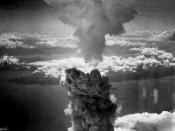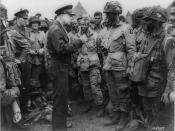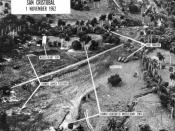The emergence of the United States as a dominant party in balance of power equations is a relatively new phenomenon in world history. New military technology coupled with increased global integration has allowed the United States to reinvent the fundamental assumptions of international diplomacy while propelling itself to the top of the hegemonic stepladder. This positioning was achieved piecemeal during the course of the first two world wars, but it wasn't until the deployment of the atomic bomb that the U.S.. assumed its position as a true superpower. The years that followed this unparalleled ascension are the most fascinating times in the history of U.S. international relations. Hopefully, an investigation into this atomic diplomacy, along with a balanced analysis of the problems of conceptualizing and implementing containment, will provide insight for our current efforts to devise a workable post-war national security policy.
There is no way to tell the story of post-war national security without also telling the story of George Kennen.
Kennen, the foremost expert of Soviet Affairs in early post-war America, is almost wholly responsible for the policy of containment. What we must remember under Kennen's containment is that nuclear diplomacy is not separate from other national security measures as it is often today. Nuclear weapons were part of an integrated system of containment and deterrence. Truman told Kennen in early 1947 that 'our weapons of mass destruction are not fail-safe devices, but instead the fundamental bedrock of American security' (Gaddis 56). They were never intended as first strike weapons and had no real tactical value. The bomb is purely strategic, and its value comes not from its destructive capabilities, but from its political and psychological ramifications. Kennen was never naive enough to view the bomb as an offensive weapon. In his long memorandum 'The International Control of...


